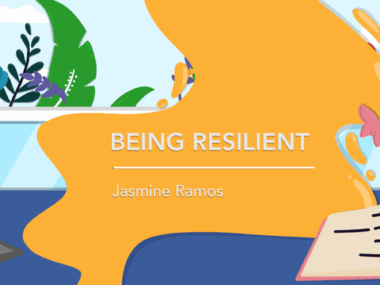Why I Relate to Taylor Swift’s ‘Anti-Hero’ as a Disability Advocate
For columnist Sherry Toh, Swift's lyrics highlight a major truth about advocacy
Written by |

Damn Taylor Swift and her lyricism.
I had a different plan for this column, with a different title in mind for it. I was going to ramble about moving out of the condominium I’ve been staying in for almost two years. There was to be a farewell to its inaccessible Stairs of Doom and a grand “hello again” to the flat my family lived in for almost two decades.
Then Taylor Swift released her latest album, “Midnights.”
Almost uncomfortably sharp introspection is the conceit of “Midnights.” As Swift explained on Twitter, “Midnights is a collage of intensity, highs and lows and ebbs and flows. Life can be dark, starry, cloudy, terrifying, electrifying, hot, cold, romantic or lonely.” The lead single, “Anti-Hero,” is one of the darker songs on the album, with Swift’s most vulnerable lyrics behind its catchy synth-pop production.
“We all hate things about ourselves,” Swift said in an Instagram reel that dove into the track’s meaning. “It’s all of those aspects of the things that we dislike and like about ourselves that we have to come to terms with if we’re gonna be this person.”
‘Midnights’ became my afternoons
When Swift talks about “this person” in the Instagram reel, she gestures at herself, the 32-year-old woman who has come so far despite detractors and certain choices she’s made. It’s relatable. We all have obstacles, regrets, and moments where we wish we did or said something better. We all internalize the darkest thoughts and harshest criticisms about ourselves to some extent, true or false. Swift just happened to turn those thoughts into a chorus (“It’s me, hi, I’m the problem, it’s me”).
The beauty of Swift’s writing is its relatability. With “Anti-Hero,” I even hear a message for disability advocates like myself.
Nearly every facet of society tells us our physiological makeup is a problem. Many disabled people go untreated because governments believe it’d be too pricey to purchase lifesaving drugs and grant us access to them; people at church pray for us to be miraculously healed (read: fixed); employers erroneously believe we’ll take sick days too often and thus don’t employ us; infantilization occurs in socialization — on and on it goes. Systemic ableism consumes us until we internalize it and truly believe we’re the problem when trouble arises.
This is mirrored in the second verse of “Anti-Hero”: “Sometimes I feel like everybody is a sexy baby/ And I’m a monster on the hill/ Too big to hang out, slowly lurching toward your favorite city.”
Swift wrote the lyrics as a reference to herself aging in an entertainment industry obsessed with youth and her monumental fame, but the verse reminds me of my life with SMA — specifically, my hunchback and wheelchair, two visually and socially disruptive things that can ruin an Instagram-perfect dinner and background for others.
I stick out with my deformity and disability. If I had a penny for every apology I’ve uttered because I needed accommodations at a restaurant, I would have the $340,000 needed for the first year of Evrysdi (risdiplam), the disease-modifying SMA treatment that I’ve been advocating for patients to have access to here in Singapore.
The monster on the hill
But the “Anti-Hero” lyrics I find cleverest and most relatable as a disability advocate are from the second half of the second verse: “Did you hear my covert narcissism I disguise as altruism / Like some kind of congressman?”
Advocacy is a form of marketing. The product is an idea of freedom or change. The currency is public attention. And nothing garners public attention like a good story.
Triumphs, shocks, and devastations acquire clicks easiest. News media is proof of that, carefully exploiting headlines to maintain viewership numbers. As an advocate who writes about her life to normalize the idea of living with a disability and challenge an ableist world, I’ve published stories about my life that exploit the same biases in human brains. Why not, if I need change to happen just to survive in this world?
Nothing I’ve published about my life is untrue. Clickbait titles are the furthest exaggerations I’ve dared. But when submitting my more vulnerable columns in fragile states, I remember how people with mental health issues are sometimes labeled attention-seekers and think, “What if it’s not about change? What if it’s about recognition and fame? What if your altruism is actually narcissism?” The answer to every question is no, of course, but those harmful voices linger and taunt me, even as I write this.
I don’t think I’ve come to terms with who I am. Not really. But I am learning to filter out the voices that aren’t my own. That should count for something.
Note: SMA News Today is strictly a news and information website about the disease. It does not provide medical advice, diagnosis, or treatment. This content is not intended to be a substitute for professional medical advice, diagnosis, or treatment. Always seek the advice of your physician or other qualified health provider with any questions you may have regarding a medical condition. Never disregard professional medical advice or delay in seeking it because of something you have read on this website. The opinions expressed in this column are not those of SMA News Today or its parent company, Bionews, and are intended to spark discussion about issues pertaining to spinal muscular atrophy.








Jennifer
Wow. What a powerful piece. Well written, simultaneously sharing details about your life with SMA and making valid points about the ableist world we, disabled folks, need to live in. The best part? This right here: "Advocacy is a form of marketing. The product is an idea of freedom or change. The currency is public attention.". Absolutely spot on. I have so much I want to say about this that you've inspired me to write a piece in response.
The world tells us that we should feel sorry for the disabled, but as I read this article, I kept wanting to cheer out loud for you. I get the impression you're kicking butts and taking names along the way. You're now my favorite (anti)hero.
Sherry Toh
I can’t tell you how much your comment means to me. It’s incredibly flattering to hear you’re someone’s new favourite something haha.
The sentiments I expressed in this column are notions I’ve grappled with for a long time. I turned down multiple opportunities to work in sales in the past because I didn’t feel comfortable marketing products, only to find myself in advocacy. I didn’t realise it at first, but it slowly dawned on me that I was marketing myself and my story. It’s a situation where you have to compromise and think about what kind of agency you have and how much, in a world where you’re made to feel like you have very little choice in anything. Anti-Hero helped me to articulate that conflict and paradox.
If you do publish that response you’re working on, please feel free to post a link to it! I’d love to read it.